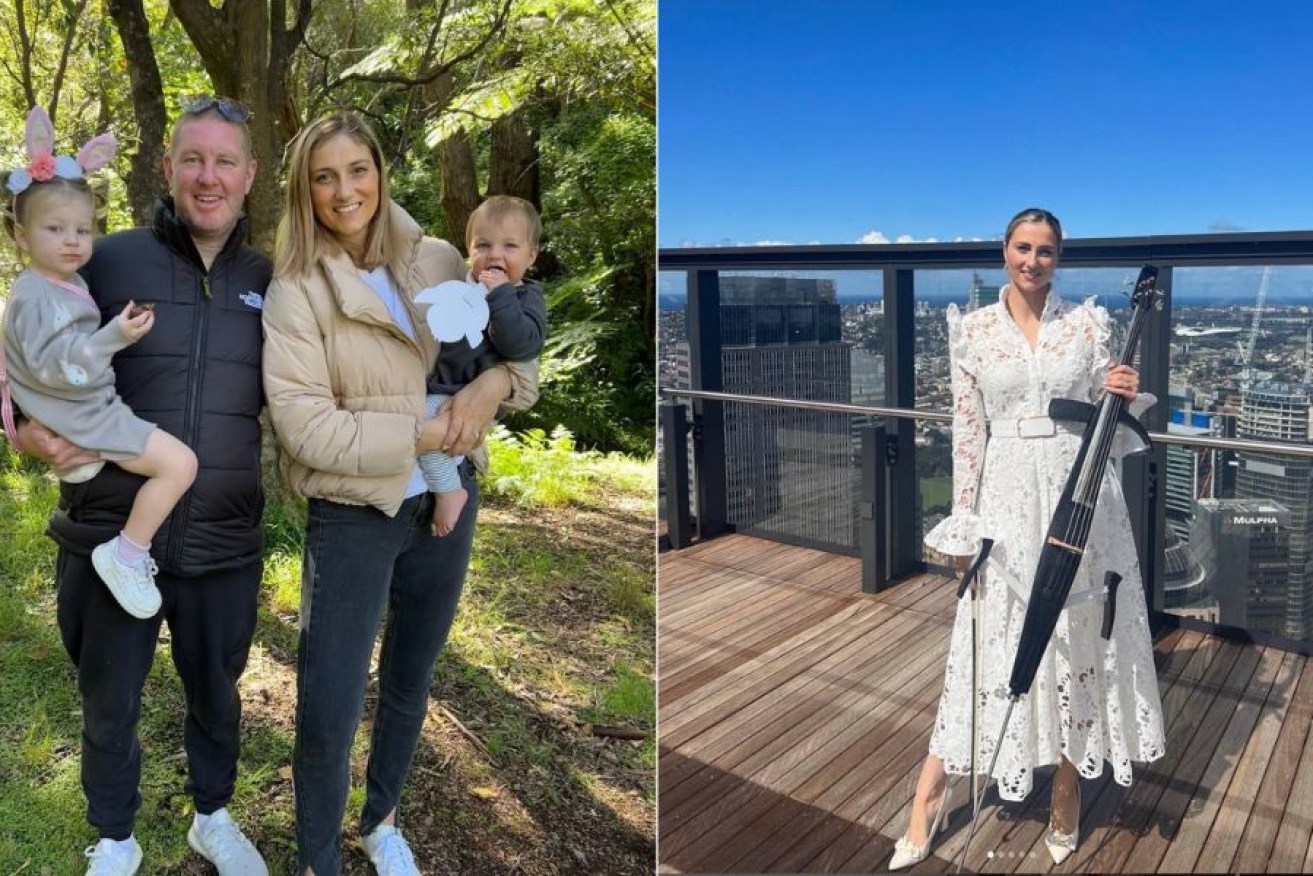‘No Buy Month’ is a challenge loaded with lessons


Hanna Oblikov isn't making any purchases for the month of October. Photo: Supplied
Coffee, food, drink, even medication are all things Hanna Oblikov is refraining from buying in the month of October.
Right now her freezer and pantry is stocked to see her through to the end of the month, and if it is absolutely necessary she will purchase medication, but the only thing she has splurged on is petrol because she needs to get to gigs.
The mum of two and her husband are like many Australian households right now and feeling the crunch of rising interest rates and the increased cost of living.
“Our mortgage has gone up so much … the cost of living has gone up so much,” Oblikov told The New Daily.
“And I just thought it’s a good excuse to try and see if I can save some money and it’s good for the planet.”
A bit of preparation is required to go a month without buying anything.
In addition to having the cupboards, fridge and freezer stocked, Oblikov does have a little help from friends and family who grow a lot of fruit and vegetables and are willing to help her cause.
With two children under the age of three, Oblikov admits she hasn’t been perfect, as her children need things like nappies, wipes and formula.
“I’m just sort of doing doing the best I can. It’s hard with little kids, because you know, they need a lot of stuff, but I’m doing what I can,” she said.
Usually, Oblikov would find herself popping into the shops nearly every day, buying things she perhaps didn’t need.
But by enforcing the ‘Buy Nothing Month’ she’s not doing that and she hopes she can keep it up and be more mindful of her purchases when November rolls.
The alternatives to buying new
Like many Australians, sustainability is front-of-mind for Oblikov, and these days more and more people are aware of the horrors associated with the fashion industry, whether it be the devastating environmental impacts or the blatant exploitation of people producing the garments.
“The ‘fast fashion’ operating model is exacerbating the problem by stepping up the pace of design and production,” Bernadette Olivier, CEO of luxury dress rental platform The Volte said.
“Cheap, disposable clothing is produced rapidly by mass-market retailers to keep up with the latest international trends and designed to encourage customers to shop regularly for new looks.”

Hanna Oblikov opts to rent luxury items instead of purchasing them new.
Everyone needs clothes, they’re a necessity. And for Oblikov, she usually needs to dress in luxury items.
As a string player and founder of Luxe Strings, she has performed alongside the likes of Rod Stewart, Ed Sheeran, Jessica Mauboy and Gang of Youths as well as at corporate events and weddings.
When she is figuring out what she and her team need to wear for an event, she will often choose to rent items from The Volte, instead of purchasing something new.
“You can’t be wearing the same thing for every gig – social media ruin that,” she laughed.
“So you have to be looking fresh every time and in something new. It’s not only that wasteful to be buying a new dresses every time but it doesn’t make sense financially.”
Buy Nothing New
While it is nearing the middle of October, you can still sign the pledge to be more mindful about purchases.
As Oblikov admitted, she needed to buy essentials for her children, so it’s not about strictly not buying anything, instead it’s a way to help challenge perspectives on how we buy things.
“Buy Nothing New Month isn’t about ‘Bugger. I really need a new deodorant, but it’s Buy Nothing New Month. Sorry workmates’,” the Buy Nothing New website says.
“This whole deal is about wasteful consumption. Cutting back on the stuff we don’t really need and changing the way we look at existing stuff.”
The website does have a few helpful tips on how to get by without purchasing something new.
For example, do what Oblikov is doing and rent or swap, purchase second-hand when possible, reuse, recycle, make stuff and alter stuff.
But if you absolutely need to purchase something, ask yourself the following questions:
- Do I really need this?
- What is its lifecycle? What went into making it (time, labour, resources)
- What are the alternatives?
- Where did it come from? How did it get here?
- What is its environmental and social impact?
- Who benefits from the purchase? What will it do for me?
- What’s in it? Who made it?








